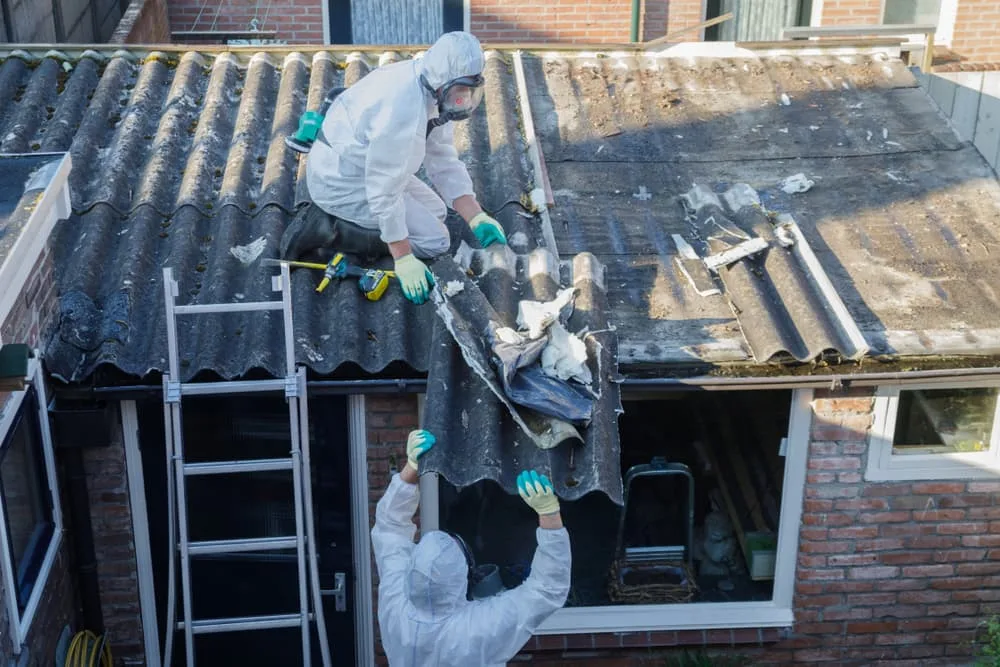If you have been diagnosed with testicular mesothelioma, you need to contact a mesothelioma lawyer right away. You can only receive the compensation you need by getting skilled legal help.
Signs of Testicular Mesothelioma

Testicular mesothelioma is an extremely rare form of cancer that affects the membrane lining the testicles (the tunica vaginalis). Due to its rarity, symptoms can easily mimic those of other conditions, more common testicular conditions. The signs and symptoms may include:
- The first noticeable sign is often a swelling or lump in the testicle. The swelling may be painless and can affect one or both testicles.
- Scrotal pain or discomfort: Some patients experience pain or a feeling of heaviness in the scrotum.
- Fluid buildup (hydrocele): Fluid accumulation around the testicles can cause swelling.
- Epididymitis: Inflammation of the epididymis, the tube that carries sperm from the testicle.
- Testicular pain: While not always present, some men experience pain in the affected testicle.
- Abdominal or lower back pain: As the disease progresses, it may cause pain in the abdomen or lower back.
- Unexplained weight loss: As with many cancers, unexplained weight loss can be a symptom.
- Fatigue: General tiredness and lack of energy may occur.
- Fever: In some cases, patients may experience low-grade fevers.
- Night sweats: Excessive sweating during sleep can be a symptom of various cancers, including mesothelioma.
It’s important to note that these symptoms can indicate other, more common conditions. However, if you experience any of these symptoms, especially if you have a history of asbestos exposure, it’s important to consult a healthcare professional immediately.
Usual Treatments for Testicular Mesothelioma

Treatment for testicular mesothelioma typically involves a multi-modal approach, combining different therapies to achieve the best possible outcome. The rarity of the condition means that there’s no standardized treatment protocol. Therefore, approaches may vary based on individual cases. Common treatments include:
Surgery: This is often the primary treatment method used. The most common surgical procedures include:
- Radical inguinal orchiectomy: Removal of the affected testicle and spermatic cord.
- Retroperitoneal lymph node dissection: Removal of lymph nodes that may contain cancer cells.
- Cytoreductive surgery: Removal of as much of the visible tumor as possible from the abdominal cavity if the cancer has spread.
Chemotherapy: Systemic drug treatment to kill cancer cells throughout the body. Common chemotherapy drugs for mesothelioma include:
- Pemetrexed and cisplatin combination
- Gemcitabine and cisplatin combination
- Carboplatin as an alternative to cisplatin
Neoadjuvant chemotherapy may precede a surgical procedure to shrink tumors or follow it to eliminate cancer cells. If surgery is not an option, chemotherapy may be the primary treatment.
Radiation Therapy: While less common in testicular mesothelioma, radiation therapy may treat:
- Shrink tumors before surgery
- Kill remaining cancer cells after surgery
- Alleviate pain and other symptoms in advanced cases
Immunotherapy: This emerging treatment helps the body’s immune system recognize and attack cancer cells. While not yet standard for testicular mesothelioma, drugs like Pembrolizumab and Nivolumab have shown promise in treating other forms of mesothelioma.
Hyperthermic Intraperitoneal Chemotherapy (HIPEC): If cancer has spread to the abdominal cavity, this treatment involves bathing the abdominal cavity with heated chemotherapy drugs during surgery to kill the remaining cancer cells.
- Clinical Trials: Given the rarity of testicular mesothelioma, patients may be candidates for clinical trials testing new treatments or combinations of existing therapies.
- Palliative Care: This treatment focuses on improving the patient’s quality of life and managing symptoms, regardless of the cancer stage. It can include pain management, nutritional support, and psychological counseling.
The choice of treatment depends on various factors, including the stage of the cancer, the patient’s overall health, and personal preferences. A multidisciplinary team of oncologists, surgeons, and other specialists typically works together to create an individualized treatment plan.
Filing a Claim Through a Mesothelioma Attorney for Testicular Mesothelioma
If you’ve been diagnosed with testicular mesothelioma due to asbestos exposure, you may be eligible for compensation; below is a detailed guide on how to choose an attorney and file a claim with a mesothelioma attorney’s help. Before you do anything, you must understand your legal rights when filing a claim.
Understanding Your Rights:
Before filing a claim, it’s necessary to understand your legal rights if your mesothelioma resulted from asbestos exposure, especially if it occurred in the workplace or through a product containing asbestos. The law recognizes that companies that use asbestos, despite knowing its dangers, can be held liable for resulting illnesses.
Choosing a Mesothelioma Attorney:
Selecting the right attorney is imperative if you wish to succeed.
Look for a mesothelioma attorney or law firm with:
- Specific experience in mesothelioma and asbestos-related cases
- A track record of successful settlements and verdicts
- Access to resources to thoroughly investigate your case
- A willingness to take your case to trial, if necessary
- A compassionate approach and understanding of the challenges you’re facing
What to Expect During Your First Meeting

Most mesothelioma attorneys offer free initial consultations. During this meeting, you’ll need to:
- Provide a detailed medical history, including your mesothelioma diagnosis
- Discuss your work history and potential asbestos exposure
- Share any relevant documents (medical records, employment history)
- Ask questions about the attorney’s experience and approach
- Discuss what percentage the lawyer will receive if they win your claim
Evaluating Your Claim
If you decide to proceed, your attorney will conduct a complete evaluation of your case. This assessment will include the following:
- Reviewing your medical records
- Investigating your work history and potential asbestos exposure sites
- Identifying potentially liable parties (employers, manufacturers, etc.)
- Assessing the potential value of your claim
Reviewing Your Options and Taking Action:
Based on their evaluation, your attorney will determine the best course of action to take, which may include:
Filing a Personal Injury Lawsuit:
- Your attorney will prepare and file a complaint in the appropriate court
- The complaint will detail your diagnosis, alleged asbestos exposure, and the parties you’re suing
- The defendants receive the complaint and have time to respond
Filing a Claim with an Asbestos Trust Fund:
If the responsible companies have gone bankrupt, they may have set up trust funds for asbestos victims. In turn, your attorney will file claims with the relevant trust funds. These claims typically involve less litigation but may result in lower compensation.
Filing for Veterans’ Benefits:
If you’re a veteran whose exposure occurred during military service, your attorney can help you file for VA benefits and other claims.
The Discovery Phase of the Lawsuit
If a lawsuit proceeds, both sides engage in discovery, which involves gathering evidence, depositing, and exchanging information.
- Exchanging relevant documents
- Answering written questions (interrogatories)
- Giving depositions (sworn out-of-court testimony)
Your attorney will prepare you for these processes and represent your interests throughout each legal step.
Negotiations and Potential Settlement:
Most mesothelioma cases settle out of court. Your attorney will:
- Negotiate with the defendants’ lawyers
- Advise you on the fairness of any settlement offers
- Help decide whether to accept a settlement or proceed to trial
Proceeding with a Trial (if required):
Your case may proceed to trial if negotiations fail to achieve a fair settlement. Your attorney will:
- Present your case to a judge or jury
- Call witnesses, including medical professionals
- Cross-examine defense witnesses
- Make opening and closing arguments
Appeals Process:
Either side may appeal the verdict. Your attorney will handle any necessary appeals.
Ongoing Support:
A good mesothelioma attorney will continue to:
- Answer any questions you have about your settlement or verdict
- Assist with setting up any structured settlements
- Provide referrals to financial advisors if needed
Your Part in the Legal Process
Throughout this process, it’s important to:
- Keep all your medical appointments and follow your treatment plan
- Maintain a journal of your symptoms and how the illness affects your daily life
- Keep all documents related to your medical care and potential asbestos exposure
- Stay in regular communication with your attorney, providing any new information promptly
- Take care of your physical and mental health, seeking support when needed
Contact a Mesothelioma Lawyer Now
If you have been diagnosed with mesothelioma, you must obtain legal assistance. Now is the time to set up a free case review and consultation. Contact a mesothelioma lawyer at Vogelzang Law immediately.



